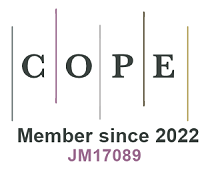A Special Topic of Rare Disease and Orphan Drugs Journal
ISSN 2771-2893 (Online)
Submission deadline:
A Special Topic of Rare Disease and Orphan Drugs Journal
ISSN 2771-2893 (Online)
Submission deadline:


All published articles are preserved here permanently:
https://www.portico.org/publishers/oae/